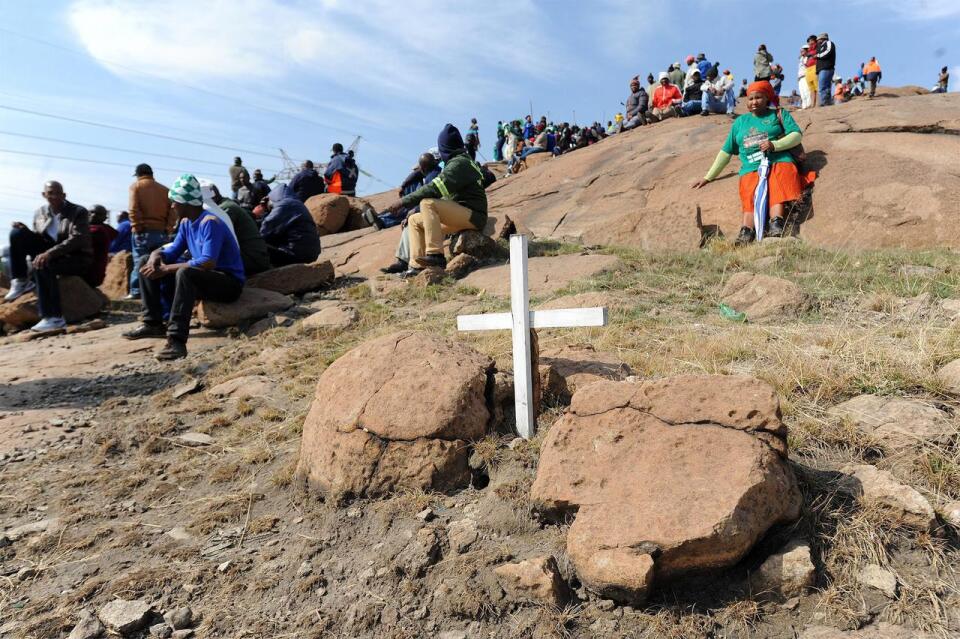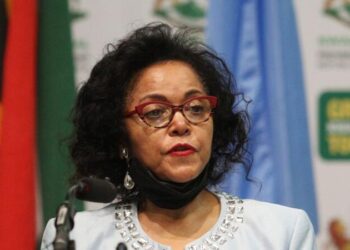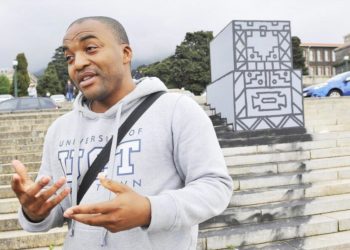Lonmin’s ‘reputational risk’ did not provoke so much as a peep out of the banks. No bank even dreamed of terminating Lonmin’s bank accounts.
Yet this ‘reputational risk’ did not provoke so much as a peep out of the banks. No bank even dreamed of terminating Lonmin’s bank accounts.
The Lonmin Marikana Massacre in 2012, killed 34 people and injured 78 mine workers for fighting for their right to receive better wages.
It was perhaps democratic South Africa’s ‘Sharpeville’ moment. The similarities are striking – ordinary black South Africans fighting for dignity. Instead they were mowed down in a hail of bullets by police representing the state.
The ‘reputational risk’ to Lonmin, the South African Police Services and the country itself was significant. The devastation and impact on the families of the victims – unquantifiable.
Yet this ‘reputational risk’ did not provoke so much as a peep out of the banks. No bank even dreamed of terminating Lonmin’s bank accounts.
Yet major banks are liberally using the reputational risk phrase, to terminate companies under the Sekunjalo Group umbrella. The ‘risk’ factor arising from innuendo contained in the PIC Commission of Inquiry Report and amplified by unfavourable media coverage.
Significantly, the Sekunjalo Group has not been found guilty by either the PIC Commission of Inquiry, any court of law, nor the banks of any illegal activity or wrongdoing whatsoever.
But, what about Lonmin?
Lonmin, formerly Lonrho, is a London-based conglomerate that was established in 1998 as Lonrho Africa. It is a producer of platinum metals operating in South Africa.
On10 August 2012, Lonmin mine workers began protesting for a pay raise, from about R4000 pm to R12 500,00 pm, because they wanted a living wage.
On 15 August 2012, twenty-four hours before the massacre, the then Lonmin director, now South African president, Cyril Ramaphosa, sent an email describing the mine workers’ strike as dastardly criminal acts, which required a concomitant action, informing then Minister of Safety and security, Susan Shabangu, of such.
On 16 August 2012, the police killed 34 striking mineworkers and injured 78, in what can only be described as one of the most brutal killings of black people in the new South Africa. It was covered by news all over the world, Lonmin’s name has never been so soiled, its reputation was in ruins. In fact, the name Lonmin will forever be synonymous with the Marikana Massacre.
A Marikana Commission of Inquiry subsequently sat for 300 days, from 01 October 2012 to November 14, 2014. Its mandate was to investigate matters of concern that gave rise to the events that unfolded, but ultimately, to determine how this could have happened, who was responsible, and who stood accountable.
The Socio-Economics Rights Institute (SERI) represented 36 families of mineworkers who were killed and the Association of Mineworkers and Construction Union before the Marikana Commission. “This evidence put before the Commission is important because it gives insight into one of the most tragic moments in South Africa’s post-apartheid history,” reads a statement on the SERI website.
But the autocratic banks saw no reputational risk in Lonmin’s move that resulted in the death of poor mineworkers. In fact, the banks didn’t just turn a blind eye, they rewarded Lonmin, as is seen in Lonmin’s 2012 annual report.
FirstRand Bank, Investec Bank and Standard Bank each provided Lonmin with R660 million bilateral facilities. It didn’t end there. On October 29, 2012, Lonmin entered into an agreement with Citigroup Global Markets, HSBC Bank, JP Morgan Securities and Standard Bank to fully underwrite about $800 million, (around $979 million today according to current interest rates) in a Rights Issue. The Group also entered into amended financing arrangements, which will come into effect upon successful completion of the Rights Issue.
Following the massacre, Lonmin committed R5 million to a fund, housed in a Nedbank account, for the children of employees who were killed. To this day, even though 34 innocent human beings lost their lives, not a single bank account of Lonmin’s – now rebranded Sibanye-Stillwater – has ever closed by any of the banks.
These very same banks, in a concerted pincer movement, have the temerity to employ “reputational risk” and negative media reports, as reasons to shut down the bank accounts of the Sekunjalo Group, a black owned and managed conglomerate that employs over 8 500 people and benefits approximately 40 000 livelihoods.
Is it really about reputational risk?
I don’t think so, and anyone who examines the hard facts (not the hyperbole), will agree.
It’s not only Lomin’s accounts, but the banks have also been remiss in dealing with other white companies such as the Steinhoff Group, EOH, and the Tongaat-Hulett Group, who have all been found guilty of fraud and various other offences.
Another example, on 03 February 2010, the Competition Tribunal imposed a penalty of R195 718 614 on Pioneer, for its role in a bread cartel, ordering Pioneer to desist from such conduct forthwith. The cartel involved the four primary bakeries – Tiger (Albany), Premier (Blue Ribbon), Foodcorp (Sunbake), and Pioneer, which owns Sasko and Dunes bakeries. The Tribunal found that Pioneer, Tiger Brands, Premier and Foodcorp had acted in contravention of the law by agreeing to a division of the market.
There are numerous other such examples, yet none of these company’s bank accounts have been closed.
With such glaring inconsistencies in the banks’ behaviour, one is left with no choice but to ask, whether racial discrimination, as submitted by the Sekunjalo Group in its court papers before the Equality Court, is at play here and not reputational risk?
Sizwe Dlamini is Investigations Editor and Head of the Falcons Special Investigations
This article was first published on IOL.


















